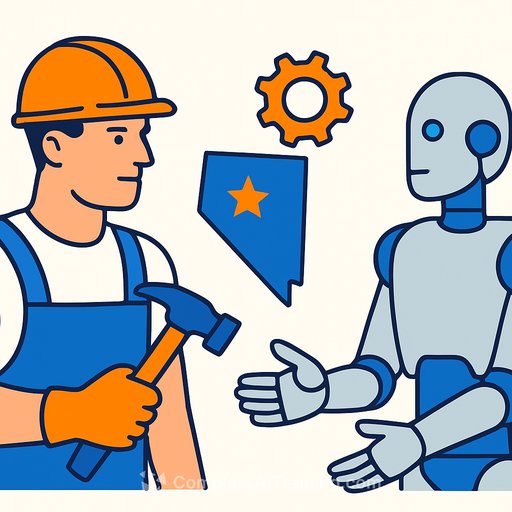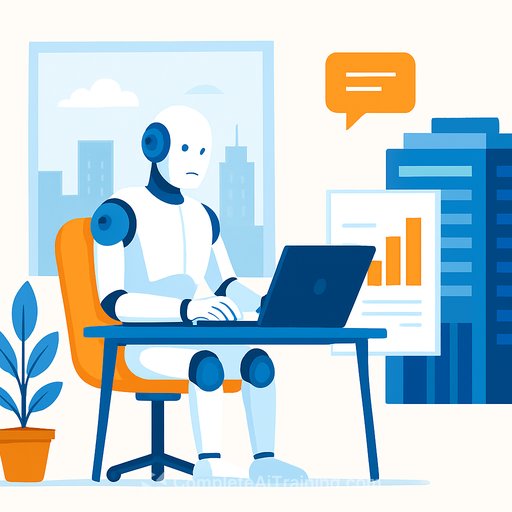Can Your Home Be Coded To Perfection?
AI is increasingly assisting homebuyers through 3D models and virtual tours, streamlining the search and evaluation process. Yet, the core elements of design, aesthetics, negotiation, and decision-making still depend heavily on human insight.
In India, buying a home has traditionally been personal, emotional, and physically demanding, involving numerous site visits and negotiations. AI's entry into real estate introduces transparency and efficiency, offering buyers more information than ever before. But as AI algorithms become more advanced, questions remain about whether technology can fully capture the emotional and cultural nuances involved in homebuying, alongside concerns about privacy, accuracy, and regulation.
Design: Humans First
Despite AI's promise of speed and efficiency, many developers emphasize that good design starts with people. For example, Ajitesh Korupolu, founder and CEO of ASBL, prioritizes understanding families' routines and preferences before sketching any design. Unique needs, such as multi-generational households requiring two master bedrooms, come from empathy rather than AI.
AI tools assist by refining and testing designs quickly, but the essence of a space—comfort, privacy, and connection—relies on local knowledge and human observation. Established methods like sun path analysis and wind flow studies help optimize natural light and ventilation, reflecting design intent rather than just technology tricks.
Discovery: AI Making Inroads
AI is transforming property search and valuation. Vivek Agarwal, co-founder and CTO of Square Yards, highlights how AI-based reports provide transparent, evidence-based valuations that support decision-making. Digitisation makes property information easier to access, verify, and share.
Advanced AI creates virtual environments where buyers can explore real estate projects, check building data, and evaluate routes from landmarks. Digital twins—live 3D models—allow buyers to track project progress remotely, reducing the need for frequent site visits.
This technology is especially beneficial for NRIs, who can now virtually walk through properties and get a true sense of scale and space, improving confidence in their investments. However, AI insights need validation from experts with market knowledge and negotiation skills, as algorithms can miss intangible factors like neighborhood quality or rely on incomplete data.
Decision: AI Data Analysis
AI’s greatest strength lies in analyzing large datasets—recent sales, neighborhood trends, and construction quality—to provide accurate price estimates. Harinder Dhillon from BPTP notes that while AI valuations offer useful insights into price trends and demand, buyers typically corroborate these with traditional sources and personal judgment for major investments.
Screening: AI Does Legwork
For Owners Letting Out A House: Finding trustworthy tenants is challenging. AI platforms analyze tenant backgrounds, payment history, job stability, and rent credit scores to assess risk. Services like Helloverify, RentenPe, and Score10 utilize machine learning to assign risk scores and flag potential defaults early.
AI can also automate rent reminders and collections, and some systems predict maintenance needs by analyzing property data.
For Tenants: Searching for rental homes has become more efficient. Tenants can input specific criteria (e.g., pet-friendly 2BHK near a metro station) on AI-powered platforms and receive matching listings instantly. Virtual tours complement this experience, though effectiveness depends on the platform and data quality.
While landlords benefit from AI screening, tenants often lack similar tools to vet landlords, creating an imbalance.
The Risks
- AI accuracy depends on quality data; outdated or incomplete information can mislead valuations and insights.
- Cultural aspects like Vastu, joint-family layouts, or kitchen separations may be overlooked by AI models.
- Legal issues such as zoning disputes, builder liabilities, and title deeds require expert legal review beyond AI's scope.
- Privacy concerns arise as platforms collect sensitive data without clear disclosure on storage and use.
- No dedicated regulator currently monitors AI use in real estate; existing laws offer limited enforcement.
- Human intuition remains indispensable. AI can map sunlight and floor plans but cannot assess neighborhood liveability or builder reputation.
Abhijith Ramapriyan, CEO of buildAhome, underscores that while AI boosts precision and speed, empathy and creativity are vital to crafting spaces that feel personal. Korupolu adds, “Humans should design for humans, but technology can help deliver that design on time.” AI is a tool that supports—but does not replace—trust, cultural fit, or buyer instinct.
Where AI Fits For Buyers
- Property Search: AI recommendation engines reduce time spent on irrelevant listings.
- Remote Viewing: AR/VR walkthroughs help NRIs and interstate buyers explore properties remotely.
- Valuation Checks: AI reports provide data-driven price comparisons.
- Design Planning: Adaptive tools prevent costly redesigns by considering cultural and functional needs.
- Project Monitoring: Digital twins and live updates reduce the need for frequent site visits.
Real Estate AI Tools
- HouseGPT: Natural language search, personalised matches, Vastu compliance checks, and live price trends.
- NoBroker’s Rent-o-Meter & Travel Time Search: Predicts fair rent prices and calculates commute times to key locations.
- RentenPe: Flags potential rent payment risks early to assist landlords.
- AiHouse India: Converts sketches or photos into photorealistic 3D interiors quickly.
- Planner 5D & Homestyler: Drag-and-drop platforms for creating floor plans and experimenting with layouts.
- Magicplan: Uses phone cameras and AR to scan rooms and generate accurate 2D/3D floor plans.
For professionals interested in expanding AI skills relevant to real estate and construction, exploring practical AI courses can be valuable. Resources like Complete AI Training offer targeted courses to enhance understanding and application of AI tools.
Your membership also unlocks:





